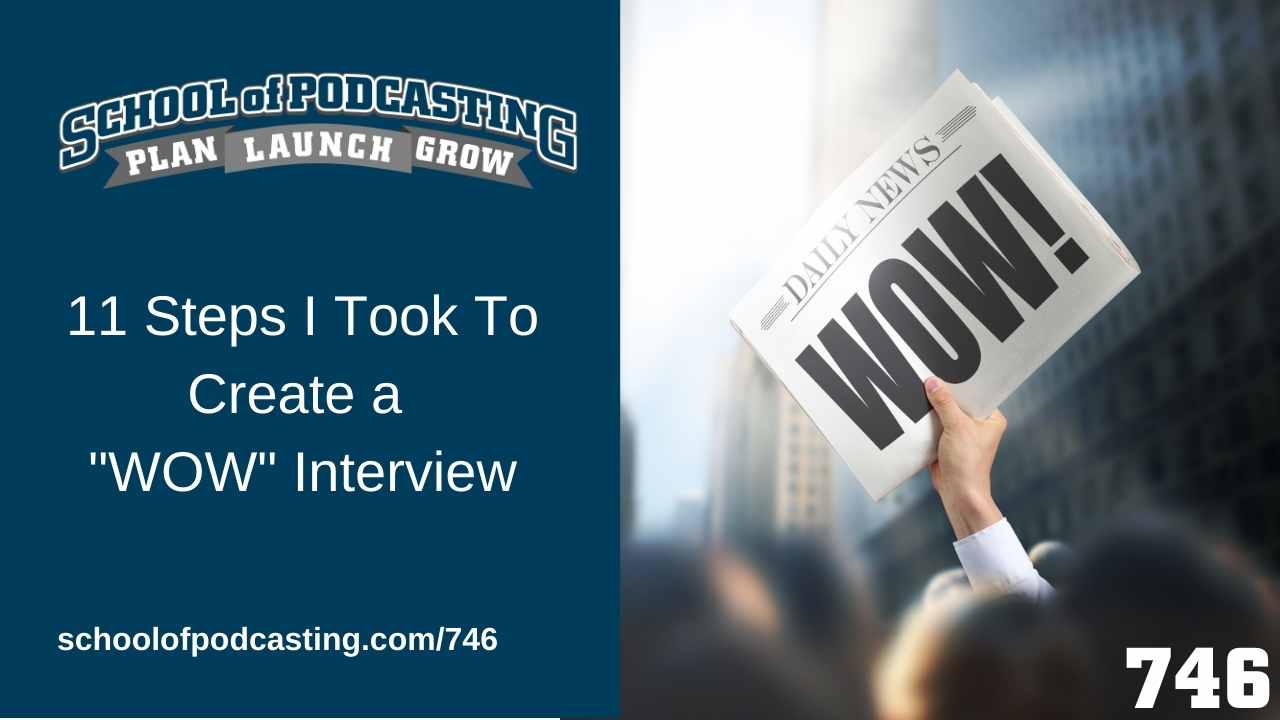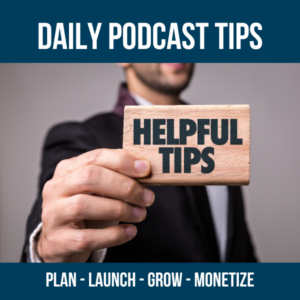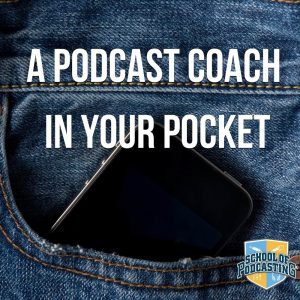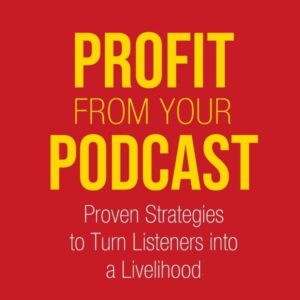
Last week, I interview Matthew Dicks who is the author of the book Storyworthy. I am a HUGE fan of Matthew and was very excited when he agreed to come on the show. After the episode was published I get email after email. I saw comments on Facebook all stating, “WOW, That was a great interview.” There will be times when you get feedback, and no matter if it's positive or negative you want to investigate why (so you can do more about it).
I've received more than average feedback on episodes like The Ultimate Guide to Hosting and Guesting Podcast Interviews, Overcoming Impostor Syndrome, How to Start a Podcast Network: The Good, the Bad, the Ugly, but the feedback I got about How to Tell Better Stories with Matthew Dicks was “way more than usual.”
One of the things I help people do is figure out what they are doing correctly with their podcast so they can do more of that type of content. With this in mind, I went back and looked at “Why did this connect with my audience?”
Step 1: Start with someone interesting
Getting entertaining stories out of Matthew Dicks is like shooting fish in a barrel.
Step 2: Ignore the Back Story
Matthew has an AMAZING back story. He took enormous steps to avoid telling his first story. While that's a nice story, I was looking for something my audience could take away. Ask yourself what is more helpful their backstory, or what they can do for your audience NOW?
Step 3: Have a Goal
Why was I bringing in Matthew Dicks? Because his book storyworthy is filled with strategies. I wanted to focus on strategies. I wanted to boost the skills of my listeners, and I wanted to sell books more Matthew.
Step 4: Know your Guest
I really wanted to get this interview going in the right direction. The minute I knew he was coming on the show, I was focused on coming up with the best questions. I especially wanted that first question to lead to a story, and to help people understand that words matter. Every night I would walk around my neighborhood listening to Storyworthy on Audible. I've already listened to this book, but I was now looking at topics that I would want to expand on. This would allow me to mention the book, and to get the content I was looking for my audience.
Step 5: Don't Test Their Powers of Improv
I had decided that the opening question would be, “When did you realize the power of words?” I really liked that question. It would lead to a story, and let my audience knowing we were going to be talking about words, and story crafting. However, I also realized that this question might need some thought on Matthew's part. Consequently, I let him know the topics we would be covering.
That would be:
When did realize words had power? (the actual question)
Editing (such as where to start a story).
Homework for life (this is Matthew's Freebird).
Normally I don't give my guests the exact questions. I typically let them know why I'm bringing them on, and the subjects we will be covering.
Step 6: Get the Best Audio You Can
When we connected via Squadcast, I was hearing Matthew through his camera's microphone. I tested this by having him tap his microphone. When he tapped it, and I didn't hear the tapping, I knew Squadcast was using the wrong microphone. When he switched away from his camera's microphone, it was like night and day.
Step 7: Prove You've Done Your Homework
When we first connected and got the microphones configured, I wanted to show Matthew I was a fanboy without being a fanboy. I know he is a HUGE fan of the New England Patriots football team. They recently made a quarterback change, so I asked him how they thought they would do. My questions also showed I had actually read the book.
Step 8: Ask and Shut Up
When I do an interview I had my list of questions on a pad to my left and a blank pad in front of me with a pen that doesn't click. When I was would ask a question I would then shut up and listen. I didn't “um, hmm” and I listened for potential opportunities to ask a follow-up question.
Step 9: Follow Up Questions
When he was talking about things that had happened because of his podcast he mentioned how at one event that he was asked to tell a story, his daughter got up and told I story. While I realize that asking an athlete, “How does it feel to win the game?”I still asked what it felt like to watch your child follow in your footsteps. This question isn't in alignment with my goal (story crafting and book sales), but I know my audience has children, and I believe we call can identify with how cool it would be to see your child follow in your foto steps;
Step 10: Remove Things That Aren't Needed
I asked Matthew what was the first podcast that he listened to. Matthew couldn't exactly remember it and was a little blurry on the year. Does this help us craft stories? Does it sell books? No. Does it give us a glimpse inside Matthew that you can't get anyplace else? Nope. This is why you didn't hear it.
Step 11: I Ran It Through a Transcription Service to find the Nuggets of Gold
If you do interviews, one way to reposition yourself as the expert (and not your guest) is to do what I call the “Jerry Springer” a summarize the main points that YOU found interesting. This enables you to share a bit of yourself as well as remind the audience of the value they just received.
For this step, I ran the edited interview through Otter.ai. This enabled me to find those great points in record time. Instead of having to listen to the episode again, I could read it much faster. Using transcripts as an editing tool is not something I hear people talk about it is typically about to create a full transcript of the show.
I did edit the transcript into something readable and added it to the website. This is not something I normally do, but maybe I should.
Need to Plan, Launch, and Grow Your Podcast?
Join the School of Podcasting and get access to our easy to understand, step-by-step tutorials, our live group coaching, and access to our private Facebook group filled with other brilliant podcasting minds. Joined worry-free with a 30-day money-back guarantee. Go to www.schoolofpodcasting.com/start





